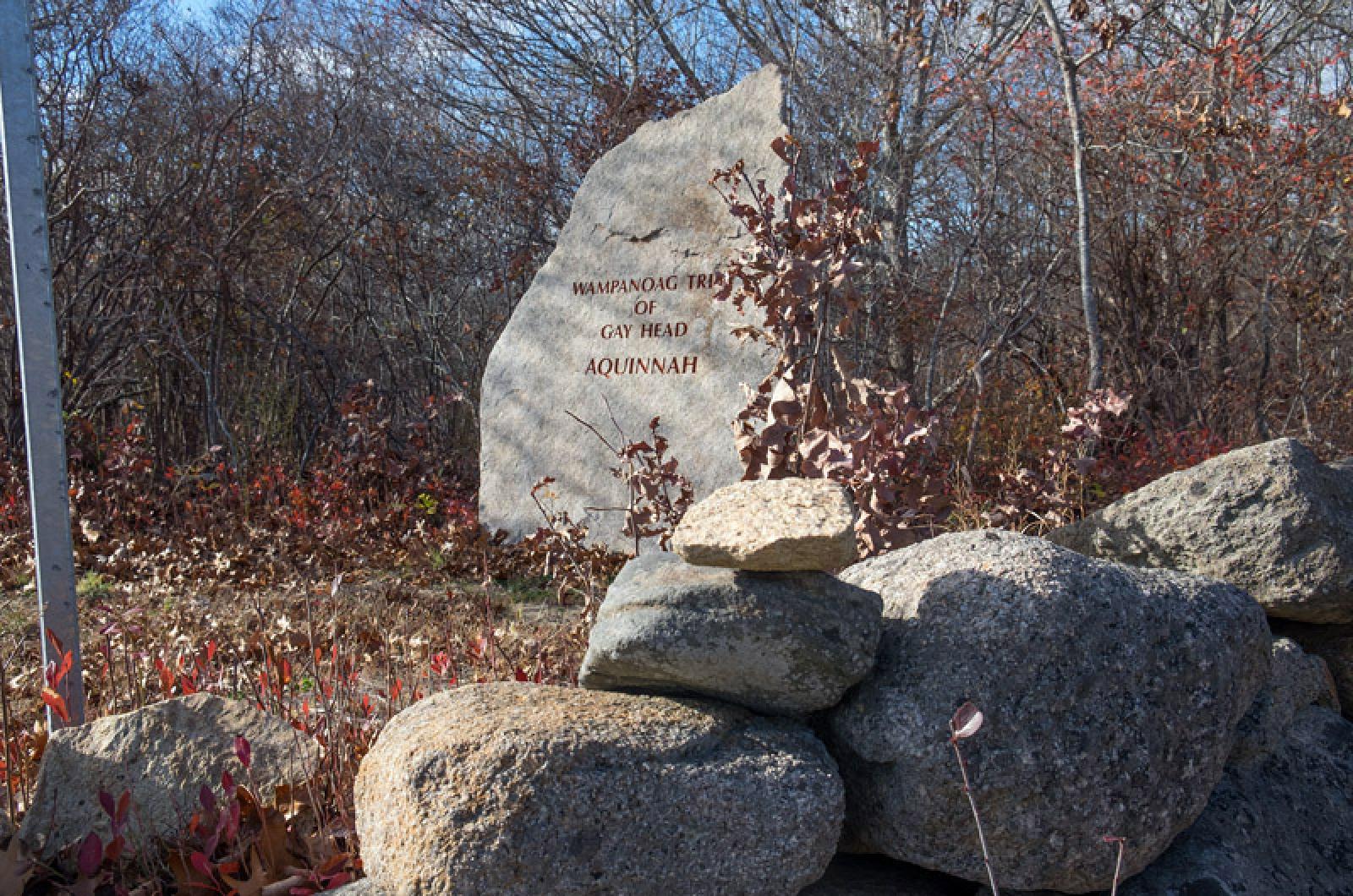Incumbent chairman of the Wampanoag Tribe of Gay Head (Aquinnah) Cheryl Andrews-Maltais will face a write-in challenge from political newcomer Kevin Devine in tribal elections this Sunday.
The election comes at a pivotal moment for the tribe, as the proposed construction of a bingo hall on tribal land in the town has sown divisions, both within the tribe and the town of Aquinnah.
Ms. Andrews-Maltais has served as chairman since 2016, when she defeated Donald Widdiss for the seat vacated by chairman Tobias Vanderhoop. Terms for tribal chairman run three years, with elections occurring in November every third year. Along with her recent stint as chairman, Ms. Andrews-Maltais also served two previous terms, from 2008 to 2013.
The Wampanoag Tribe of Gay Head is one of two federally recognized American Indian tribes in Massachusetts, with recognition coming in 1987. According to the tribe’s website, there are currently 1,364 registered tribal members, with 319 living on Martha’s Vineyard and 98 living on tribal lands in Aquinnah.
The election will take place from noon to five p.m. on Sunday at tribal headquarters off of Black Brook Road in Aquinnah. Tribal members are required to vote in person, with a tribal ID card required for access to the ballot booth. The election is part of a general tribal member meeting and is not open to the public.
According to publicly available state voting records, Ms. Andrews-Maltais was born in 1959 and is registered to vote in Edgartown. Her opponent, Mr. Devine, is 48 years old and recently retired from 27 years of active duty service in the army. Mr. Devine grew up on the Vineyard and currently lives in Vermont, but said he is in the process of moving back to the Island.
In her most recent tenure as chairman, Ms. Andrews-Maltais has led the tribe’s pursuit of a class II gaming facility in the town as a form of economic development and expression of tribal sovereignty, amid a longstanding legal battle with the town over the construction of the facility.
In January 2018, the U.S. Supreme Court declined to hear arguments in a case brought by the town challenging the tribe’s gaming rights, clearing the way for the class II bingo hall. The tribe then announced a $10 million partnership with Global Gaming Solutions — the gaming arm of the Chickasaw tribe — to construct the facility.
In January 2019, the tribe broke ground, clearing four acres of land off Black Brook and State Roads. The construction triggered intense public reaction from townspeople and the threat of legal action from both the town and the Martha’s Vineyard Commission. Eventually, the town and tribe went back to court, with a federal judge ruling in July that the tribe had to obtain local building permits before beginning construction.
Despite small legal wranglings in the aftermath of the decision, all substantial construction has remained halted since.
Speaking to the Gazette by phone Thursday, Mr. Devine said he decided to run earlier this summer after attending general membership meetings at tribal headquarters, where he spoke up and received support from other tribe members in the town who felt that they weren’t receiving adequate support for economic development, health care, and other issues. He said he disagreed with the direction the tribe has taken under the leadership of Ms. Andrews-Maltais, and sees the election as an opportunity to promote involvement and activism from tribe members.
He is not in favor of the current casino project, among other things citing concerns about safety and alcohol.
“I don’t agree with it,” Mr. Devine said. “People up here are doing things based on their own personal preferences. Many Island tribal members do not want this casino. I think there are so many opportunities for us to be successful in other business ventures.”
In a voicemail message sent to the Gazette late Thursday, Ms. Andrews-Maltais said the position of chairman demands fluency wuth a complicated tangle of tribal, state and federal agencies to meet thee needs of the tribal community. She cited her extensive experience in those areas.
“Essentially, tribal government and leadership is really complex,” Ms. Andrews-Maltais said. “As the tribal leader you need to understand fiscal appropriations, funding responsibilities, budgets, statutory requirements, and you need to understand the legislative process and the fundamentals and applicability of federal Indian law in tribal sovereignty. I’ve actually earned the respect of tribal leaders from all across Indian country, and our federal partners and state leadership. I have extensive experience on both sides.”
Between stints as tribal chairwoman, Ms. Andrews-Maltais completed a presidential appointment for the Obama administration as a senior advisor to the Assistant Secretary on Indian Affairs. She has also served as the tribe’s personnel director and historic preservation officer before her first term as chairman in 2008.
This year, she was named Woman of the Year at the 24th annual National Indian Women’s Supporting Each Other Luncheon in Washington, D.C. Presidential candidate Elizabeth Warren nominated Ms. Andrews-Maltais for the award and joined her on stage at the reception.
Mr. Devine said he has been campaigning for much of the last month.
“It doesn’t matter the outcome,” he said. “Whatever happens, my goal is to get tribal members active and showing support. The hierarchy should be tribal members on top, then the council, then the chairman.”
Votes will be tallied Sunday by tribal chief Ryan Malonson and tribal medicine man Jason Baird. Results are usually made public after the votes are counted.







Comments (5)
Comments
Comment policy »